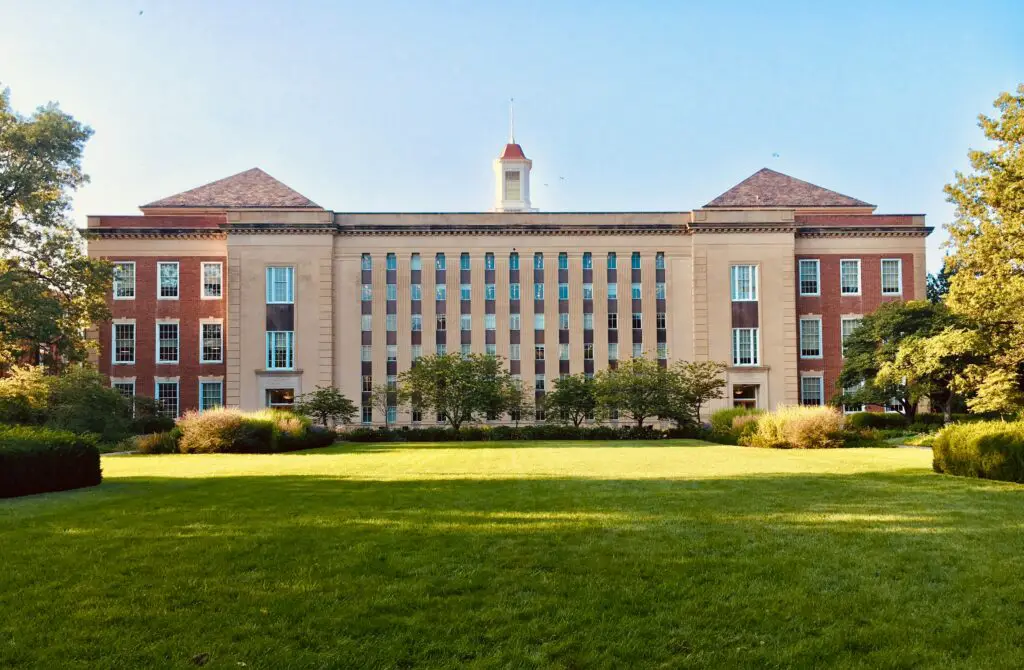The Ivy League stands for excellence, prestige and exclusivity. These elite institutions are known for their rigorous academics, selective admissions process, and long track record. Many schools aspire to be part of this prestigious group, but only a select few can claim membership. The Wharton School of the University of Pennsylvania is often mentioned in Ivy League discussions, but does it really belong to this elite group? This article examines the history of the Ivy League, and why Wharton is not considered an Ivy League school.

Is Wharton University an Ivy League school?
Wharton University is not considered an Ivy League school, but he is still one of the most prestigious business schools in the world. Wharton consistently ranks as one of the nation’s top business schools, and its graduates are in high demand by top employers. While Wharton is not part of the Ivy League, Wharton’s reputation for educational excellence, rigorous curriculum, and outstanding faculty make it a premier destination for aspiring leaders.
How Wharton Compares to Ivy League Schools?
Although technically not a member of the Ivy League, Wharton is often considered a peer of these schools in terms of academic excellence and prestige. Wharton is routinely regarded as one of the top business schools domestically and globally. In a range of professions, major businesses are interested in its graduates. Additionally, Wharton has a long history of academic and research excellence and is known for its rigorous curriculum and outstanding faculty.
Why Wharton is not part of the Ivy League?
There are several reasons why Wharton is not considered an Ivy League member. One of the most important is being a graduate student at the University of Pennsylvania, already an Ivy League member. Another reason is that Wharton does not offer a bachelor’s degree in liberal arts and sciences, a requirement for Ivy League membership. While not belonging to the Ivy League, Wharton is regarded as one of the nation’s most elite universities.
Being an Ivy League school means:
Being an Ivy League school brings a lot of prestige and exclusivity. Ivy League colleges are renowned for their academic quality, rigorous entrance standards, and outstanding athletic and academic accomplishments. Attending an Ivy League school can open doors to a variety of career opportunities and provide invaluable contacts in your professional life.
Why Wharton Isn’t Considered An Ivy League School?
The University of Pennsylvania is an Ivy League member, but the Wharton School is not. This is because the Ivy League designation is limited to undergraduate programs only and Wharton is a graduate business school. Although not officially part of the Ivy League, Wharton is recognized as one of the top business schools in the world, with a reputation for academic excellence and a rigorous curriculum.
Wharton’s Fame and Reputation:
Despite not being an Ivy League school, Wharton is regarded as one of the most prestigious business schools in the world. Its graduates are in high demand by top employers and the school has a reputation for producing successful business leaders. Wharton’s rigorous curriculum and excellent faculty make it a premier destination for aspiring business professionals.
Other Non-Ivy League Schools of Academic Excellence:
Ivy League schools are often considered the best universities in the United States, but non-Ivy League schools are also known for academic excellence. These schools include institutions such as Massachusetts Institute of Technology (MIT), Stanford University, Caltech (Caltech), and Duke University. These institutions are also quite selective and turn out alumni who are successful in a variety of disciplines.
Wharton History and Legacy:
The first business college in the world, The Wharton School, was established in 1881. Since then, it has grown to become one of the most renowned business schools worldwide. Wharton has a long history of successful business leaders and its alumni include some of the most influential figures in business and finance.
Comparison between Ivy League and Wharton:
Wharton is not considered an Ivy League school, but is often compared to these institutions because of its academic excellence and prestige. While Ivy League schools have broader programs and focus more on undergraduate education, Wharton is known for his world-class MBA program and his reputation as one of the top business schools in the world. increase.
Importance of fame in education:
Attending a reputable institution can be an important factor in your career success, but it’s not the only factor. Work ethic, commitment, and a willingness to learn and develop are further key traits. Ultimately, it is up to each individual to make the most of their education and opportunities regardless of where they went to school. The Ivy League and other respected institutions can open doors and make valuable connections, but your ultimate success depends on your individual skill and drive.
Conclusion:
In summary, although not technically an Ivy League member, Wharton is still considered one of the nation’s most reputable schools of business. Ivy League designations have great influence in the world of higher education and can be a major factor in the success of graduates of these schools. But even without an Ivy League title, Wharton College remains a highly respected institution that provides a good education and ample opportunities for its graduates.
FAQ:
- Is Wharton College the only non-Ivy League school often considered equal to these schools in terms of academic excellence and prestige?
No, other non-Ivy League schools are often equated with these schools in terms of academic excellence and prestige. These institutions include Duke University, Stanford University, California Institute of Technology (Caltech), and Massachusetts Institute of Technology (MIT).
- Does attending an Ivy League school guarantee professional success?
Ivy League education does not ensure success in the workplace. An Ivy League certification can be an important factor in your career success, but ultimately it is up to you to make the most of your education and opportunities. Hard work, dedication, and the desire to learn and grow are important factors for professional success, regardless of where you went to school.

